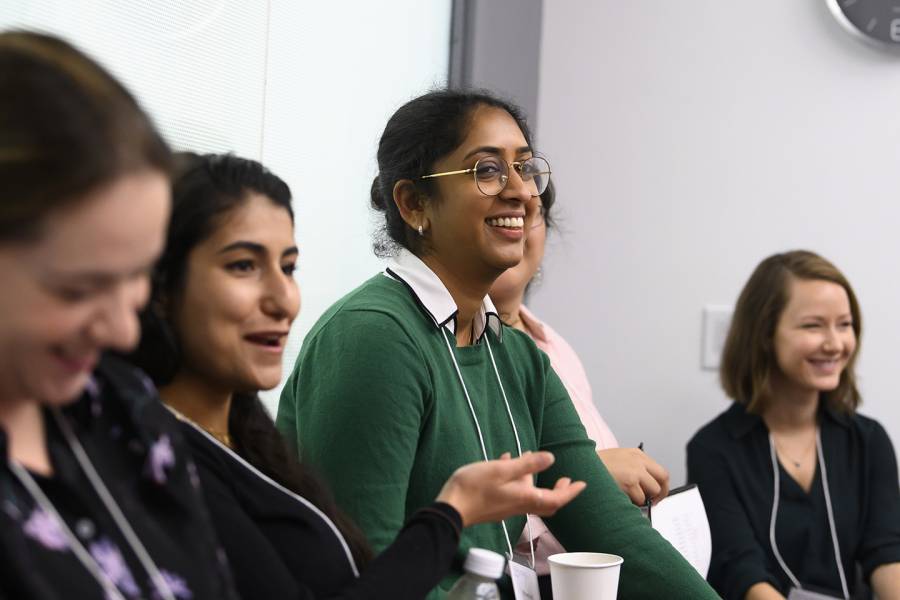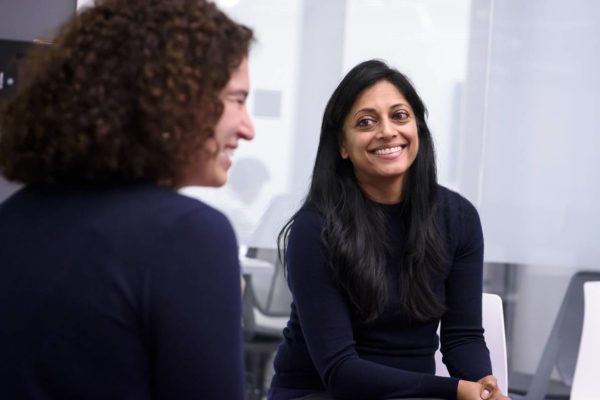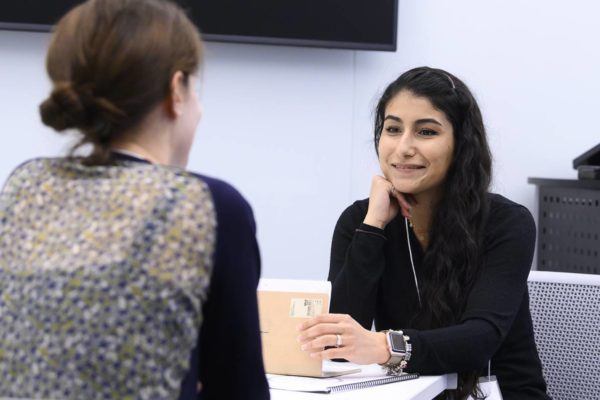“Evidence shows that women tend to lack confidence in the critical years of transitioning from postdocs to independent researchers,” said Sri Sarma, associate professor of biomedical engineering, vice dean for graduate education at the Whiting School of Engineering, and co-organizer of the event. “This workshop aims to develop professional communication skills that will help women deliver more impactful speeches and interview more effectively.”
Rising Stars participants, who were nominated by their faculty advisers to attend the workshop, participated in small groups with faculty from the Massachusetts Institute of Technology, Harvard University, and the Johns Hopkins Department of Biomedical Engineering to craft impact statements and storyboards that describe their research. Participants helped one another identify ways to improve how they communicate the significance of their work—what might non-experts find confusing, what is most important about their findings, or what aspects of their research might others find interesting, for example.
When Colleen Garvey, a senior PhD student at the University of Southern California, met with her small group for the exercise, she described her work identifying colorectal cancer patients who are unlikely to respond to a particular type of treatment.
“How common is this treatment? What other options exist for these patients?” asked fellow Rising Star Aurélie Pala, a postdoctoral researcher at the Georgia Institute of Technology.
“If this is the default therapy for patients with colorectal cancer, that is really important to know,” added Natasha Hussain, scientific director of the Kavli Neuroscience Discovery Institute at Johns Hopkins, one of the event’s supporters. “Your work could potentially spare patients from unnecessary and unpleasant treatment.”
By the end of the workshop, Garvey and other Rising Stars were prepared with interview-ready impact statements that incorporated feedback from faculty and their peers.
“Researchers tend to present their work the same way over and over with only one type of audience in mind, the expert scientist who already supports and is excited about their work,” said Hussain. “This activity helped participants understand how others perceive what they are saying so that they can learn to communicate more clearly when they go on the job market.”
In addition to effective communication techniques, Rising Stars developed other important interviewing skills through a series of exercises led by representatives from HFP Consulting. Participants learned strategies for releasing nervous energy before an interview or presentation, being proactive and making their own opportunities, personalizing their elevator pitches to align with their passions, and gaining confidence while talking about themselves and their work.



